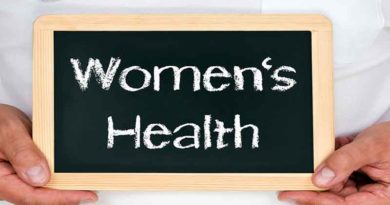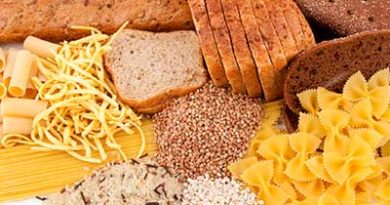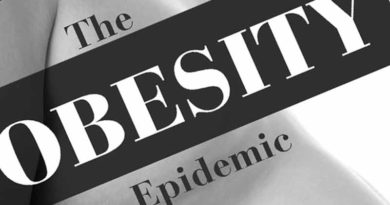Letter to the Lancet re. EAT
On 17th January 2019, the EAT diet report was published in The Lancet (Ref 1).
A couple of hours after seeing the report, I published this post.
On 26th January, I submitted the following letter to The Lancet:
This correspondence is in response to “Food in the Anthropocene” (Ref 1).
Table 1 in that document set out a “healthy reference diet” based on 2,500 calories. I analyzed the micronutrients provided by the recommended diet.
Notwithstanding that an adult female would consume four fifths of the diet (and nutrients); the diet was already nutritionally deficient. The most serious deficiencies were:
Vitamin D – 5% of the RDA of 15mcg (Ref 2).
Retinol – 17% of the RDA of 900mcg (Ref 3) – carotene conversion cannot be relied upon.
Calcium – 55-65% of 1,000-1,200mg recommended (Ref 4).
Iron – the paltry amounts of beef, pork, chicken and fish provided a maximum of 1.1mg of heme iron. “The RDAs for vegetarians are 1.8 times higher than for people who eat meat” (Ref 5). Barely half the iron intake for females would thus be provided.
Essential fatty acids – 28g of fish cannot provide the EPA and DHA required, while the nutritionally poor 350 calories of highly unsaturated fats would create an unhealthy omega-6 to omega-3 ratio.
Vitamin B12 requirements were almost met, but Table 1 allowed for animal foods to be replaced with plants and these would not provide B12. There is an error on p16: “The only exception is vitamin B12 that is low in animal-based diets.” That should be plant-based diets.
I also found issues with vitamin K (dominated by K1, not the better absorbed K2); potassium and sodium (the latter two being more easily rectifiable).
The precise numbers would change with different foods chosen, but the scale of the deficiencies would not.
This diet will cause malnutrition and is dangerous to recommend.
Today, 7th March, I received the following email:
Manuscript number: THELANCET-D-19-00513
Title: The EAT diet is nutritionally deficient
Dear Dr. harcombe,
Thank you for submitting your Letter to The Lancet. Having discussed your Letter with the Editor, and weighing it up against other submissions we have under consideration, I am sorry to say that we are unable to accept it for publication. Please be assured that your Letter has been carefully read and discussed by the Editors. Thank you for your interest in The Lancet, I hope this decision does not deter you from considering us again in the future.
Yours sincerely
Josefine Gibson
Senior Editor
The Lancet
ZH – Clearly The Lancet does not want my letter alongside the original article, so that anyone viewing the original article would be mindful of the fact that the diet being recommended is nutritionally deficient. It will be interesting to see which letters, if any, are published, as I know of other critiques that were submitted. The error on p16 has at least been corrected to read “The only exception is vitamin B12 that is low in plant-based diets.”
References
Ref 1: https://www.thelancet.com/commissions/EAT
Ref 2: https://ods.od.nih.gov/factsheets/VitaminD-HealthProfessional/
Ref 3: https://ods.od.nih.gov/factsheets/VitaminA-HealthProfessional/
Ref 4: https://ods.od.nih.gov/factsheets/Calcium-HealthProfessional/
Ref 5: https://ods.od.nih.gov/factsheets/Iron-HealthProfessional/




Zoe,
I am in agreement with you that the move to prodeominely eating a plant based diet would not only be nutritionally deficient. It would also have a huge impact on the economy, our culture, and for me personally, the pleasure I get from enjoying real food.
However, for someone who is attempting to consume a “typical” eat-well [or eat-badly] diet – that we already know is not up-to-scratch nutritionally; would following this way of eating be more beneficial to their health?
I’ve read your comments from the trust me I’m a doctor program and the family were obviously going to show improvements in their wellbeing since they were predominantly eating junk.
I look forward to hearing from you,
Michelle
Hi Michelle – yes – that family in the TMIAD prog had the most dreadful diet imaginable didn’t they?! Then they went on the plant based diet and ate better and had some good results. However, that was the very short term. They may have continued to have good results for a few weeks although – without supplementation of B12 – a plant based diet could harm within about 3 weeks.
It might also depend on supplements being slipped into the diet – as often happens with manufactured plant stuff, as they know that nutrients are missing. There may be vitamins and minerals added to dry cereals and/or non-milks (almond, soya kind of stuff) and then people might be Ok-ish as they are effectively supplementing.
How long before inferior protein bites? Or lack of omega-3? or absorb-able iron? or D3? or retinol? I don’t know, but I wouldn’t like to find out. Oh – except I did – when I went vegan in my 20s and ended up in Moorfields eye hospital almost blind. Turns out I’m not a good converter of carotene to retinol! And this wasn’t picked up by the hospital – or me. I had no clue about nutrition back then – why would I? We don’t teach it to children as we should do. I had two eye operations instead and then a coffee bar happened to open at work and I started drinking milky cappuccinos quite regularly (I know – vegans shoot me down!) and lo and behold my “serious and rare” eye condition went away.
I think my TMIAD reply has got caught up in the virus thing – it should have been sent before lockdown, I’ll chase when the world goes back to normal.
Best wishes – Zoe
Dear Dr. Harcombe
It is a great pity your indepth letter of explanations put forth were not allowed to be published, perhaps, who know, for the facts contained therein, were too true and correct for comfort zones? indicating the information they provided was not true and correct?
I am not a Doctor, yet highly respect the information you provide, and this includes the simple format that of areas points raised, you did not get published, but not all lost, as their decisions not to, indicates surely, there is something to hide, compared to your indepth root points raised?
Excellent information you provided nevertheless.
JD
Hi Jennifer
Many thanks for your kind words. I’m a PhD doctor – not MD – we’re the ones who look at data!
The puzzlement is that the reply said they had so many replies they couldn’t publish them all and – at last time of checking -no letters had been published!
The fact that The Lancet commissioned this seems to have impaired their impartiality.
At least the WHO seems to be wiser!
https://www.bmj.com/content/365/bmj.l1700
Best wishes – Zoe